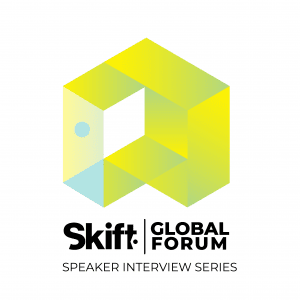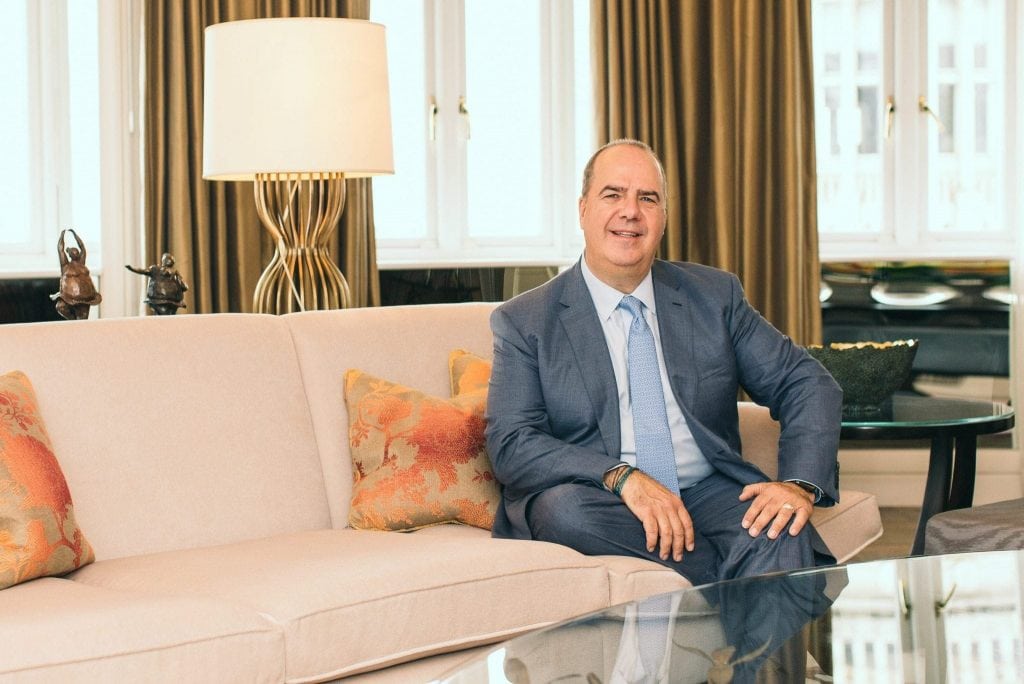Skift Take
The travel agent still exists for a reason. Despite having the option, plenty of people don't want to do it on their own, and are happy to get someone else to make plans — even if it costs more.
 More than 1,100 of travel's most forward-thinking insiders will gather for our annual Skift Global Forum in New York, September 27–28. In just a few years, Skift's Forums — the largest creative business gatherings in the global travel industry — have become what media, speakers, and attendees have called the “TED Talks of travel.”
More than 1,100 of travel's most forward-thinking insiders will gather for our annual Skift Global Forum in New York, September 27–28. In just a few years, Skift's Forums — the largest creative business gatherings in the global travel industry — have become what media, speakers, and attendees have called the “TED Talks of travel.”
Skift Global Forum 2018 will take place at Jazz at Lincoln Center’s Frederick P. Rose Hall in New York. This year's Forum speakers include CEOs and top executives from Uber, Airbnb, Delta Air Lines, Hyatt Hotels Corporation, Marriott International, and many more.
The internet was supposed to make travel agents obsolete. Why bother heading into your local store if you could just search for flights and hotels online?
While it’s true that the likes of Expedia and Booking.com have eaten into their business, travel agents have survived. Sure, there may not be as many around as there once were but many of those still here are doing well, especially at the luxury end of the market, where cash-rich, time-poor individuals don’t want to click around.
Travel intermediaries still exist, but they now serve a different purpose. That’s perhaps why some in the industry have sought to get rid of the word agent altogether, replacing it with advisor instead. The word implies something different – more of a consultant than someone who just searches for vacations.
Organizations like Virtuoso have been at the forefront of this rebirth and at Skift Global Forum in New York on September 27–28, the CEO Matthew Upchurch will discuss the future of travel agents. We spoke to him to find out a little more about his views on the sector.
Editor’s Note: This interview has been edited for length and clarity.
Skift: Your session at the Skift Global Forum is entitled bringing the personal back into personalization. Could you talk a little bit about what you mean by that?
Matthew Upchurch: What’s interesting is this whole thing about personalization – what people want. We’re seeing a new appetite. I mean, one of our fastest growing user client growth areas are millennials. And millennials are the first digital natives.
Certainly with the millennials that don’t just want a cheap price, right? Because the de facto way of booking travel since they started was DIY. So for them you can actually apply one of the most simple definitions of luxury, which is of course I can do it myself. I don’t want to. I don’t want to spend my life’s energy there.
One of my other big things for the year as we evolve this profession is the theme of the myth of the intermediary. So I hate being called an intermediary. And one of the theses that I’m putting out there today in the industry is guys, that is a term that needs to be retired.
And the reason I think it needs to be retired is because maybe that was appropriate back in the day when technological and logistic barriers made it impossible for producers to distribute direct to the consumer. Today with the online and logistics revolution they’re pretty much isn’t a product that can’t be booked direct. So when a consumer chooses not to book direct they’ve made a conscious choice based on a different set of value propositions.
Skift: It’s pretty amazing when you think about how the business has gone over the past 20 years. You’re saying there’s been a kind of rebranding?
Upchurch: In all my years of serving this profession one of the things that’s been a delight has been watching the really great advisors, it’s like a coach watching sports players, right? Like, man, how did they do that? What do they do? What do the best players have in common?
We did some consumer research where we asked consumers and we asked advisors, what do you think, what are the things that you value the most? And one of the key questions is what are the things that a true trusted advisor does that are different from an order processor, a transactional agent?
And the number one thing by a long shot that the consumers told us was the difference between an advisor that they truly feel is a true advisor, was the conversation after the trip. So if I become your advisor and I send you to Greece or I send you to Bhutan and whatever. The really good advisors in their own way based on the clients’ preferred ways of communicating, they will always be briefed. So it creates a learning relationship.
The Daily Newsletter
Our daily coverage of the global travel industry. Written by editors and analysts from across Skift’s brands.
Have a confidential tip for Skift? Get in touch
Tags: sgf2018, skift forum, skift global forum, Virtuoso
Photo credit: Matthew Upchurch, Virtuoso CEO. Upchurch will be on stage at Skift Global Forum 2018. Charlie Sawyer Photography / Virtuoso
